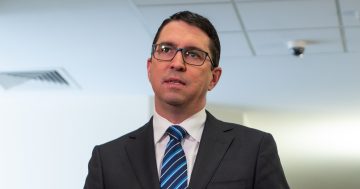Like it or not, remote working is ending for many organisations, but John Eades* says a return to the office should not mean a return to business as before.
 For many people, this is the time when remote work begins to end.
For many people, this is the time when remote work begins to end.
Whether you love remote work or hate it, most people have been amazed at the performance and productivity of employees engaged in it.
Several studies over the past few months show productivity while working remotely from home is better than working in an office setting.
On average, those who work from home spend 10 minutes less a day being unproductive, work one more day a week, and are 47 per cent more productive.
If productivity wasn’t enough, saving hours a day from a commute and having more time for exercise and family are enormous benefits.
However, after two years of working from home, the return to the office may now be upon you.
Organisations of all sizes and industries have communicated their return-to-the-office policies.
Chief Executive of Google, Sundar Pichai said most of its workforce would be in the office three days a week.
“I think we can be more purposeful about the time they’re in, making sure group meetings or collaboration, creative collaborative brainstorming, or community building happens then,” Pichai said.
While I am sure not all of Google’s employees are thrilled with the decision, Pichai demonstrated outstanding leadership and thoughtfulness in his approach by looking beyond just having employees physically back in an office.
In other words, don’t just bring people back to the office to do the same work they were doing at home.
Most organisations and leaders have been so focused on defining their return-to-the-office policies they have forgotten the most essential part.
That is, what team members are going to do differently while they’re there.
Having interviewed and coached hundreds of professionals in the last year, the overwhelming priority employees mention in a job search is flexible and remote work options.
The scary part is they say this before their salary or compensation desires.
The organisations and leaders who embrace this demand will win the talent war.
If you are interested in making sure the time you are in the office with your colleagues is more purposeful, make sure the following are on the agenda.
Team building activities
Zoom, Microsoft Teams, Slack, and email are great ways to communicate and get work done collaboratively.
What these tools often lack is mechanisms to build stronger relationships and more cohesive teams.
However, being back together allows teams to be authentic and vulnerable with each other.
However, this doesn’t happen by accident.
Team building activities could be a planned event like playing pickleball, or a tough roundtable question like: “What does each person need to do better to help us be more successful?”
Regardless of the activities that work best for your team, leaders need to craft time and safe spaces for teams to open up and say what needs to be said.
Purpose sessions
People persevere because of purpose, not pay.
Fully remote work makes it hard to engrain a more profound purpose like mission, vision, and core values into a team.
Now is the time to double and triple down on the core values of your team or organisation and highlight precisely what it means to live them daily.
Role and skill audits
The majority of organisations have performance evaluations yearly.
Now is the time to conduct role and skill audits.
Ask team members: “Are you in the right role?” Or “are there any other roles or skills you want to explore?”
Ask managers: “What team members aren’t in the right role?” Or “what skill gaps do you have on the team?”
Shift employees to better align with their interests and gaps that exist.
Strategy symposium
Strategic alignment is one of the essential things any organisation or team can achieve.
However, doing it well online is difficult.
Block three days in the office to solely focus on strategy, competition, and the current market.
This will be time well spent because most people like to work in the business versus on the business.
There has never been a better time to schedule a strategy symposium.
Whether you plan to return to the office or not, don’t wait another month without blocking an offsite strategy symposium.
Development workshops
As someone who has taught hundreds of virtual leadership development workshops through the pandemic, I have learned a few things.
First, virtual workshops are more cost-effective and easier to host and attend.
Second, they are tougher to develop meaningful skills.
If that wasn’t enough, it’s challenging for managers to keep a finger on the pulse of their team’s skill development with a fully remote workforce.
So, unfortunately, most managers default to looking solely at short-term results instead of coaching long-term skills.
The point is, if you are going to bring people back together in person, focus on meaningful skill-building and development.
A few additional ideas include mentoring meetings, an innovation conference and employee Ted Talks about lessons learned from the pandemic.
Whether April is the beginning of the end of remote work for you or not, the reality is every team should be focusing on being more purposeful with the time team members are together in person.
The stakes are high, and getting the return to the office right could make or break the future of your organisation.
So focus more on what people will be doing together versus how many days they will be doing it.
*John Eades is the Chief Executive of LearnLoft a leadership development company. He can be contacted at johneades.com.
This article first appeared at johneades.com.











